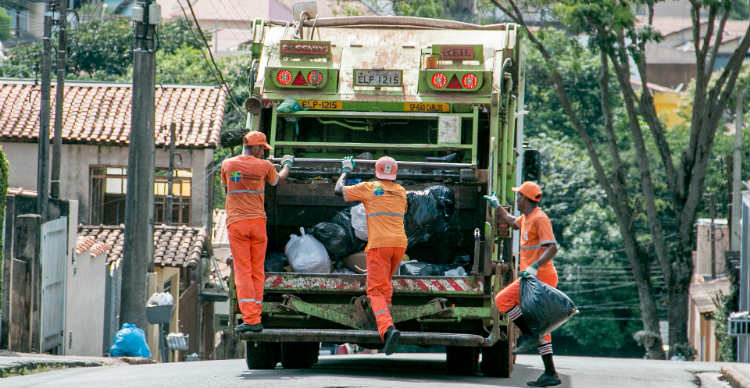San Diego Trash Collectors Secure $500,000 In Unpaid Meal Break Class Action
San Diego will pay a group of municipal trash truck drivers $500,000 in compensation over allegations that the city illegally docked their wages for lunch breaks. The wage dispute began in 2014, when several of the drivers accused their municipal employer in a class action lawsuit of deducting 30 minutes per shift from each worker’s paycheck, even though the workers were required to stay on their collection routes at lunchtime.

The trash collectors’ lawsuit has been settled; it never went to a jury trial. A spokesperson for San Diego City Attorney Mara Elliott told reporters that the settlement agreement had been reached in light of the significant risks, both for the City and taxpayers, that a battle in court would entail. San Diego denies any wrongdoing, but believes a settlement is in the best interests of residents and City employees.
California’s Meal Break Law
According to federal and California state labor law, employers are allowed to stop paying workers during “bona fide” meal breaks. “Bona fide,” in this context, means that the break actually has to be a break, a period of time (usually at least 30 minutes) during which the employee is completely relieved of their duties.
California’s own wage laws go further, giving eligible workers the right to both meal and periodic rest breaks: a 10-minute rest break for every 4 hours of work and a 30-minute “bona fide” meal break for any workday that lasts more than 5 hours. A second 30-minute meal break is required for 10-hour workdays. Meal periods are considered “on duty,” and must be compensated, unless the employee is relieved of all job duties during the break.
San Diego Says “Charter Cities” Are Exempt
San Diego broke these laws, the trash collectors claimed, by forcing them to stay on the job during lunch, but failing to pay for that time. In an anticipated move, attorneys for the city argued in court filings that San Diego, as a “charter city,” should be considered immune from state and federal labor laws. “Charter cities,” municipal officals argued, “are supreme and beyond the reach of legislative enactments.”
Beyond the reach of legislative enactments? As in, all the laws passed by the State of California? That’s a big claim and, in general, it’s not accurate. But in this particular case, it might be.
How Does A Charter City Work?
To an American observer, the concept of charter cities probably seems pretty foreign. Similar in idea to the special administrative regions, like Hong Kong and Macau, that enjoy considerable sovereignty in China, California’s 121 charter cities are largely governed, not by state, regional or national laws, but by their own charter documents.
There are, of course, exceptions. Charter cities in California can’t just violate every California law. But they do benefit from a latitude not shared by their “General Law” counterparts. Most charter cities in California institute their own taxation systems, for example, which allows them to create tax structures that incentivize development and investment more than California’s general practice tax code. They also have more freedom in structuring their police forces and administering local elections.
“Statewide Concerns”
In any event, San Diego says that its privileged status as a charter city, governed by its own rules, makes it exempt from the wage and hour obligations outlined in California’s state-level labor laws. Whether or not that’s true is a complex question. California law says that charter cities have the right to govern their own affairs and can only be constrained by state laws on issues of “statewide concern.”
But who decides which issues are of “statewide concern”? The voters of California and, if a democratic mandate is challenged, the State’s Supreme Court. According to the League of California Cities, California’s Constitution only outlines four basic (or “core”) duties that should be left to municipal control:
- regulation of the “city police force”
- “subgovernment in all or part of a city”
- “conduct of city elections”
- “the manner in which municipal officers [are] elected”
These four responsibilities are left to charter cities as a matter-of-course. Everything else is a matter of debate and, more likely, outright argument. As we can see, wage and hour laws aren’t on the list. A 1979 Supreme Court of California ruling, however, provides some guidance. In Sonoma County Organization of Public Employees v. County of Sonoma, the Court held that “the salaries of charter city employees are a municipal affair and not a statewide concern regardless of any possible economic effect those salaries might have beyond the borders of the city.”
Do Charter Cities Have To Comply With Labor Law?
That precedential opinion, it would seem, gives charter cities like San Diego a fair degree of latitude in setting employee salaries, seeing as economic effects that extend beyond the city’s borders don’t amount to a “statewide concern.” Does that logic extend to how charter cities handle meal breaks for public employees?
Who knows? The trash collector class action could have decided that question, if had gone to court and been decided by a jury. Now that it’s ended in a settlement agreement, California’s charter cities and their employees will have to wait for another court case to figure this issue out.
While San Diego’s “charter city” argument might be the most interesting case for circumventing state labor laws, municipal attorneys also said that a labor contract with the drivers governed their rest breaks, irrespective of state law. They also questioned why the employees didn’t attempt first to air their grievances through an internal complaint process.
220 Garbage Collectors Benefit From Settlement
San Diego employs around 100 trash truck drivers at any one time, the San Diego Tribune report. About 220 current and former workers are expected to benefit from the $500,000 settlement, though, since the alleged wage and hour violations date back to 2011 and the city’s waste management service has a relatively low retention rate.
$500,000 isn’t much, considering how much the drivers could have won in a civil trial. Many of the employees claim to be owed back wages for over six years of work, plus interest or the “liquidated damages” often awarded in lieu of interest, essentially double the amount of unpaid wages.
San Diego’s municipal trash collection service is offered to most single-family homes free of charge. Thanks to an odd 1919 edict, the People’s Ordinance, people living in condominiums and business owners are left out of the arrangement, despite having a portion of their tax dollars go to support the waste management program.
Needless to say, the People’s Ordinance is controversial. But it goes to support 100 city jobs; trash truck drivers in San Diego make around $50,000 per year in salary, but many of them earn over $80,000 after overtime and benefits are taken into account.

